SWIMMING IN COLLEGE
The coaches of MMSC have a long, successful history of assisting athletes to the collegiate level of competition in the sport of swimming. This section of our site is designed to aid you in recruiting process.
Below are some of the recruiting rules and terms that will help you in the process:
Scholarship Limits - Division I schools are limited by the NCAA to 9.9 men's and 14.0 women's swimming scholarships. Division II schools are limited to 8.1 scholarships each for men and women. Division III schools are not permitted to offer athletic scholarships. NAIA schools offer athletic scholarships. Swimming is an "equivalency" sport meaning these scholarships may be divided among a number of individuals. "Fully-funded" institutions provide the maximum number of scholarships. Not all schools are fully-funded. In addition, all Ivy-League schools are not permitted to give athletic scholarships. Many schools, especially Division III schools, reward athletic and scholastic ability with liberal academic awards.
Equivalency Scholarships – As mentioned above this means that schools may break scholarships into portions or units. Depending on the institution this can be done in many ways. Some schools go by a strict percentage. (i.e. a scholarship is worth $10,000 so a 40% scholarship is $4,000) Others break their scholarships into units. One semester of tuition, housing, meals, and books are all units to be given out. All of these have various values depending on the institution.
Athletic Scholarship - An athletic scholarship is a one-year contract between you and a Division I or Division II institution. A school can reduce or cancel a scholarship if you become ineligible for competition, fraudulently misrepresent yourself, quit the team or engage in serious misconduct. During the contract year, a coach cannot reduce or cancel your scholarship on the basis of your athletic ability, performance, or injury. An institution may choose to not renew a scholarship at the end of the academic term provided they notify you in writing and provide you an opportunity for a hearing. This is why no coach can offer you a four-year scholarship.
National Letter of Intent - The National Letter of Intent (NLI) is administered by the Collegiate Commissioners Association (not the NCAA). When you sign the National Letter of Intent you agree to attend the institution with which you signed for one academic year in exchange for the institution awarding financial aid, including athletics aid, for one academic year. The signing dates for swimming are usually the 2nd week in November (Early) and Mid-April through August 1 (Late).
Mail - With the exception of an athletic questionnaire an camp brochure, Division I and II schools cannot provide recruiting materials to you until September 1st at the start of your junior year. After that date, schools can send you general correspondence, attachments printed on white paper with black ink, business cards, wallet-size schedule card, and one media guide or recruiting brochure. Division I and II schools cannot send you recruiting or highlight videos, or CD-ROM's, though they may show them to you on campus. Division III has no such restrictions.
Phone Calls - Division I and II colleges and universities are prohibited from calling you prior to July 1st following the completion of a prospect's junior year. If you received a call prior to July 1st, that school broke the law. After that coaches may call you once per week. Exceptions to this limit are made a) during the five days prior to your official visit; b) the day of an in-person, off-campus contact; and c) subsequent to your national letter of intent signing. Calls may be made by most athletic staff, but not student-athletes. Division III has no such limits.
Electronic Contacts - E-mail and faxes are considered mail, so they are permissible to juniors. AOL's Instant Messenger and similar services are considered telephone calls and limited to seniors.
Contacts and Evaluations - Any face-to-face meeting between a college coach and you or your parents, during which any of you say more than "hello" is a contact. If no contact is made between a coach and you or your parents, this is considered an evaluation. For all divisions, a college coach cannot contact you off-campus and in person until July 1 prior to your senior year. During the academic year Division I and II institutions are limited to seven permissible recruiting opportunities (contacts and evaluations) with you, not more than three of them may be in-person, off-campus contacts with you.
Contacts at a Meet - A coach may not speak with you at a meet until the conclusion of your final event and clearance from your high school or club coach. If the meet takes place over a number of days, college coaches will have to wait until the final day to speak with you.
Official Visits - You are limited to five official visits. (this is why it is important to narrow your search early in the process) On an official visit a school CAN pay for your transportation, lodging, and meals. The school can also pay for your parent's meals, and lodging. The school may also pay for their transportation provided you traveled by automobile. Institutions may also provide a student host with $30 for entertainment ($20 in Division III) within a 30 mile radius of campus and may also provide you with and your parents with complimentary admissions to a campus athletics event. Additional tickets may be reserved and purchased at face value by other family members accompanying you on a visit. They cannot provide you with gifts of any kind including photos, t-shirts, etc.
Unofficial Visits - A school may provide you with three complimentary admissions to a campus athletics event on an unofficial visit. A school cannot pay for your meals, lodging, or entertainment on an unofficial visit, although you are permitted to stay in student housing with a student-athlete by paying the regular institutional rate (which is frequently nothing for short-term guests).
NCAA Clearinghouse – The NCAA now clears all potential college recruits before the recruiting process can begin. All high school juniors should complete a clearinghouse form before they finish the school year. This form is available through most high school guidance counselors or on-line through the NCAA. You cannot go on an official visit or receive a scholarship without being cleared by the NCAA. NCAA CLEARINGHOUSE LINK
HOW TO STANDOUT
Academics. Colleges who are recruiting swimmers place great importance on and pay close attention to grades and standardized test scores. Prepare for standardized tests such as the ACT and SAT by hiring a tutor or taking a local prep course. You can also buy books, DVDs, and audiocassettes geared towards improving ACT and SAT scores. Swimmers should take one or both of these standardized tests in their Junior year. While training in the water, be careful not to neglect your academics. In addition to your best times, your GPA and ACT or SAT scores are key when Division III schools award academic scholarships to top swimming candidates. At some schools, large academic scholarships are offered to athletes.
Many students overlook the importance of the college application. Take time and care when preparing applications; fill them out thoroughly. Write essays that admissions officers will find interesting and insightful. Have your essays read by an English teacher to make corrections or suggestions for a better essay. Get recommendations from those teachers who know you both (as a student and a person) personally and academically. The Common Application is used by over 400 schools.
Athletics. The first ingredient of successful marketing is an attractive product. In addition to a strong academic file, exert the necessary effort and time to better your swimming skills and results.
Do college research early and often and create a tentative list of probable colleges. Go to the websites of the colleges that interest you and find the link to the Swimming and Diving page to learn more about the team. Most pages will have a link for a Prospect Questionnaire. Juniors who are interested, should complete the online questionnaire without any omissions. Gather the email addresses of these colleges' swimming coaches and inform them of your interest and athletic and academic ability. Let them know that you completed the online prospect questionnaire. Persistence pays off! If a coach does not respond, be sure to send a follow-up email. Many coaches will then send (via mail) an inquiry form; be sure to complete and return the form immediately. Start relationships with these coaches, but be careful to stay within the guidelines of NCAA regulations
Inform the coaches of more than just your best times. Alert them of any progress you have made either in the pool or in the classroom. Between two comparable swimmers, a coach will find the one demonstrating marked improvement most appealing. Remember to constantly update coaches of recent results. When talking to coaches, sound interested and remain honest.
Don't wait until your Senior year to start visiting schools. Any time you are near a college that might be of interest to you, you should stop in and take a tour offered by the Admissions Department. You can stop by the pool and informally say hello to the swimming staff, if they are present. Juniors should consider taking college tours during their Spring Break. These unofficial trips will help you decide what official visits to schedule in your Senior year.
Plan and take recruiting trips. They are an excellent opportunity for you to learn about a particular school and for that school and swimming program to learn about you. Be attentive, aware, and interested. Be sure to interact with the coach and to reiterate your interest in his school and his program. Ask the coach if he has any questions for you. Having your club coach contact collegiate coaches is an excellent way to convey your interest and provide him or her with another useful source of information. The club coach should do this only when you are serious about a college.
It is not recommended that you pay a recruiting service to help you in the process. You can register with beRecruited.com. With over 100 registered college and collegiate coaches from Divisions I, II, and III, beRecruited.com is a useful resource. However, nothing will replace your personal time and effort in contacting a school.





